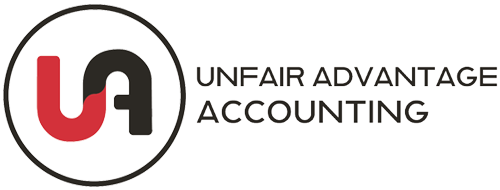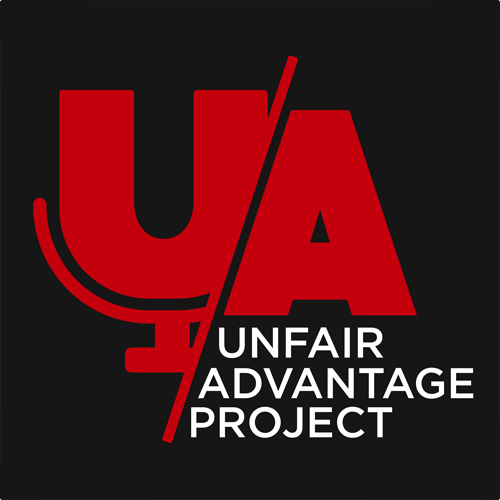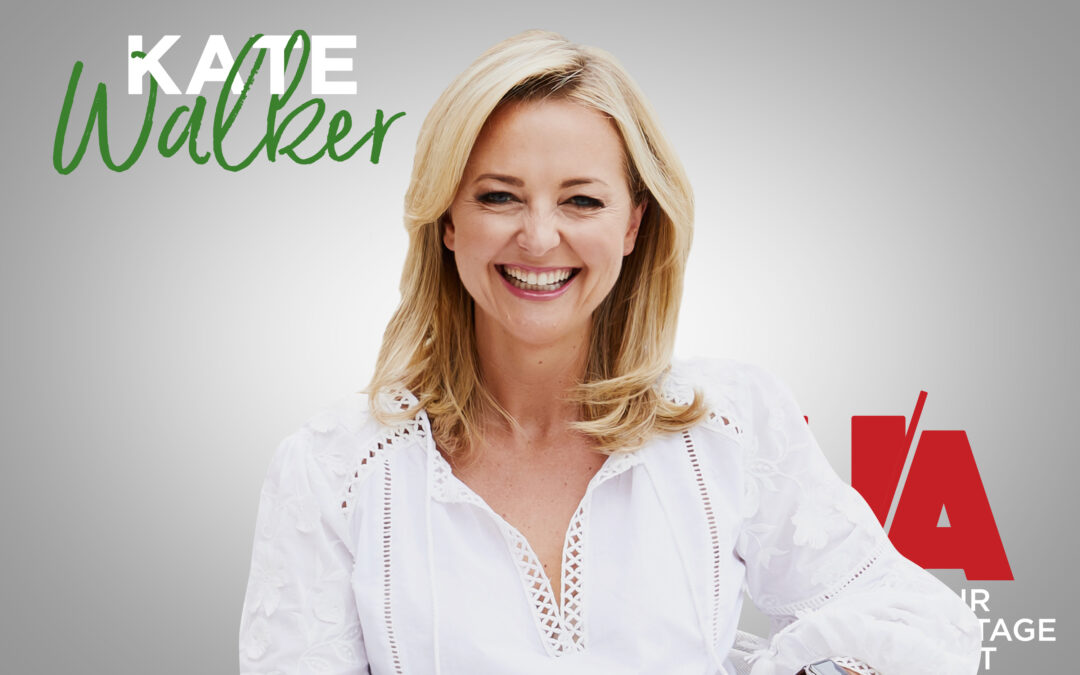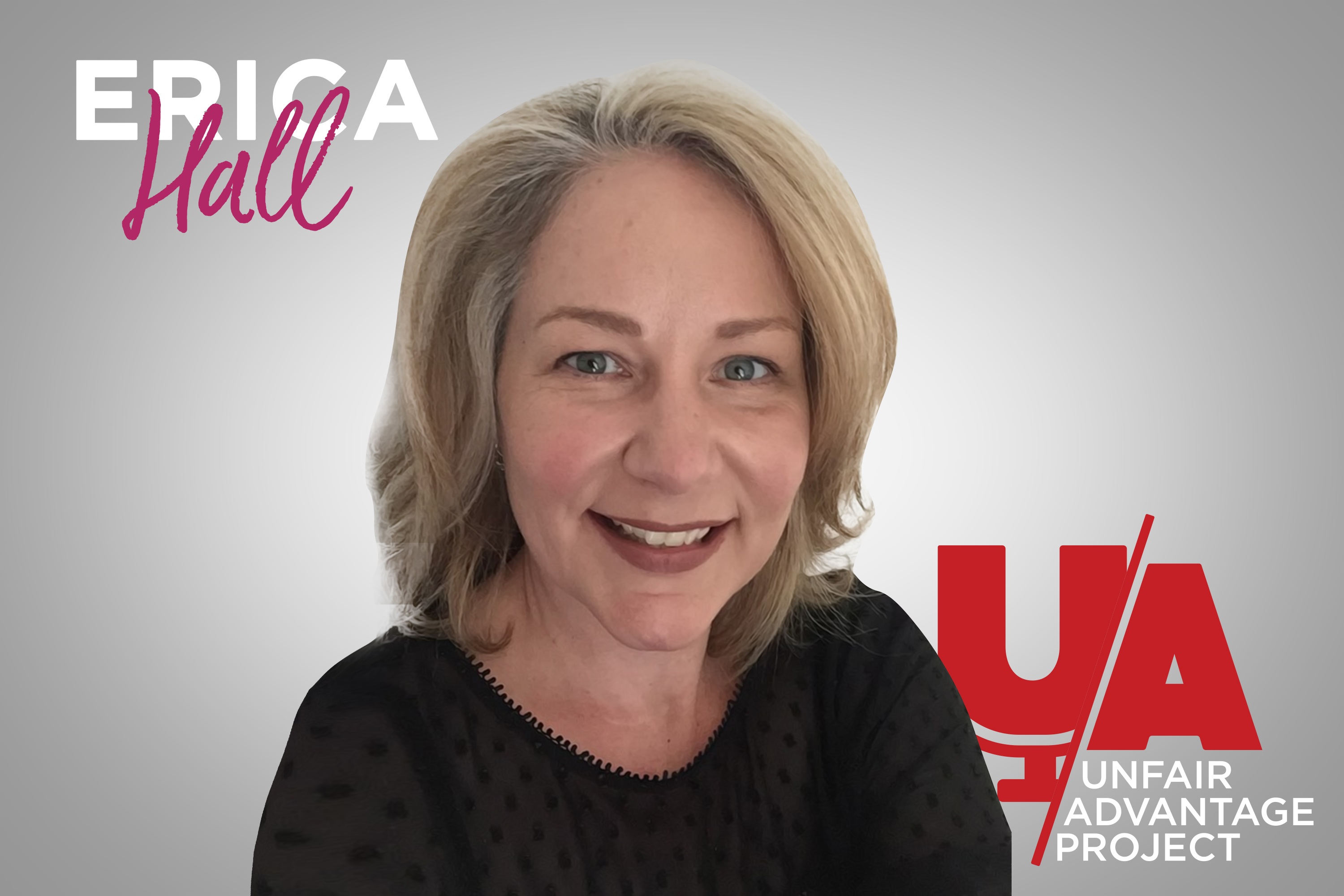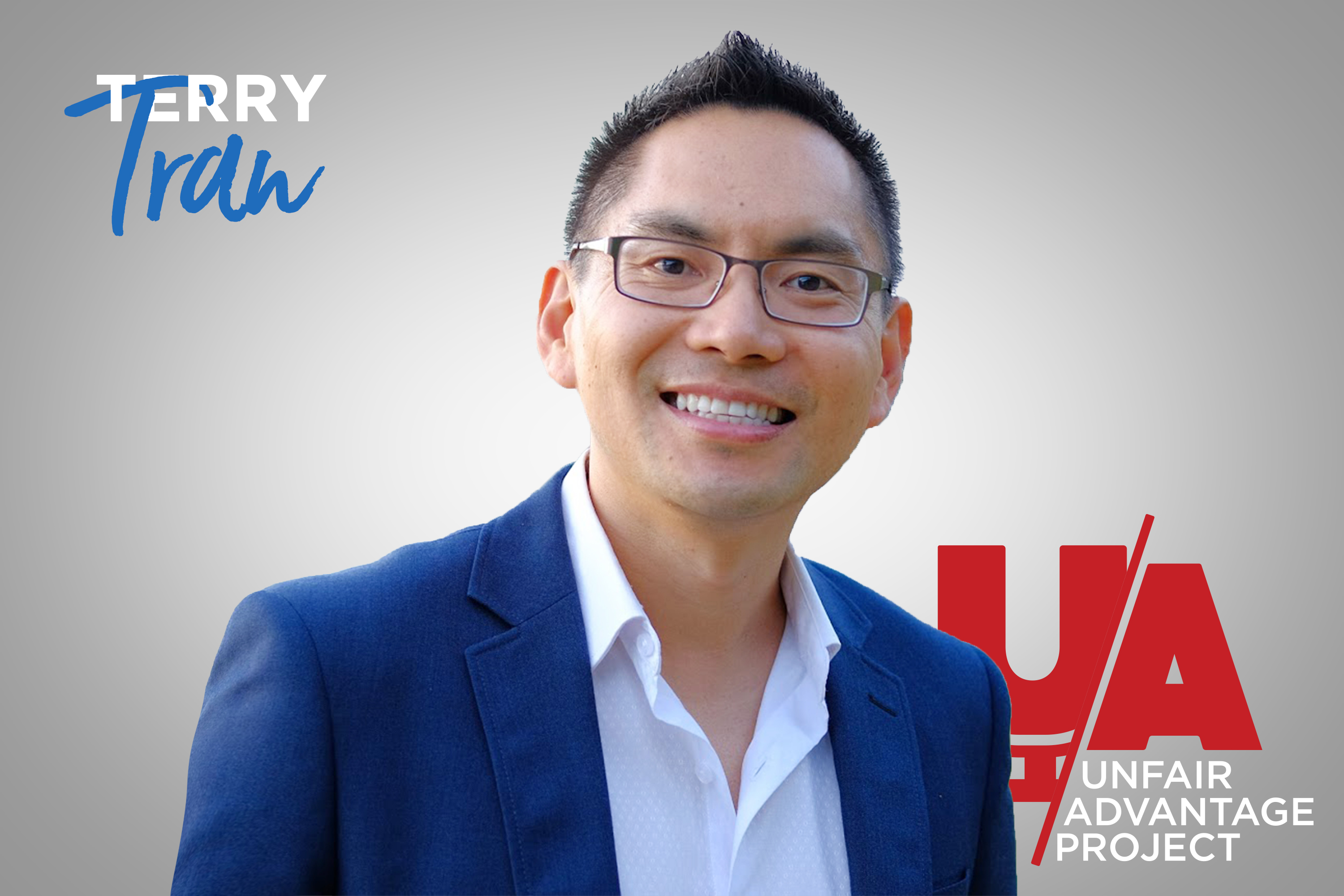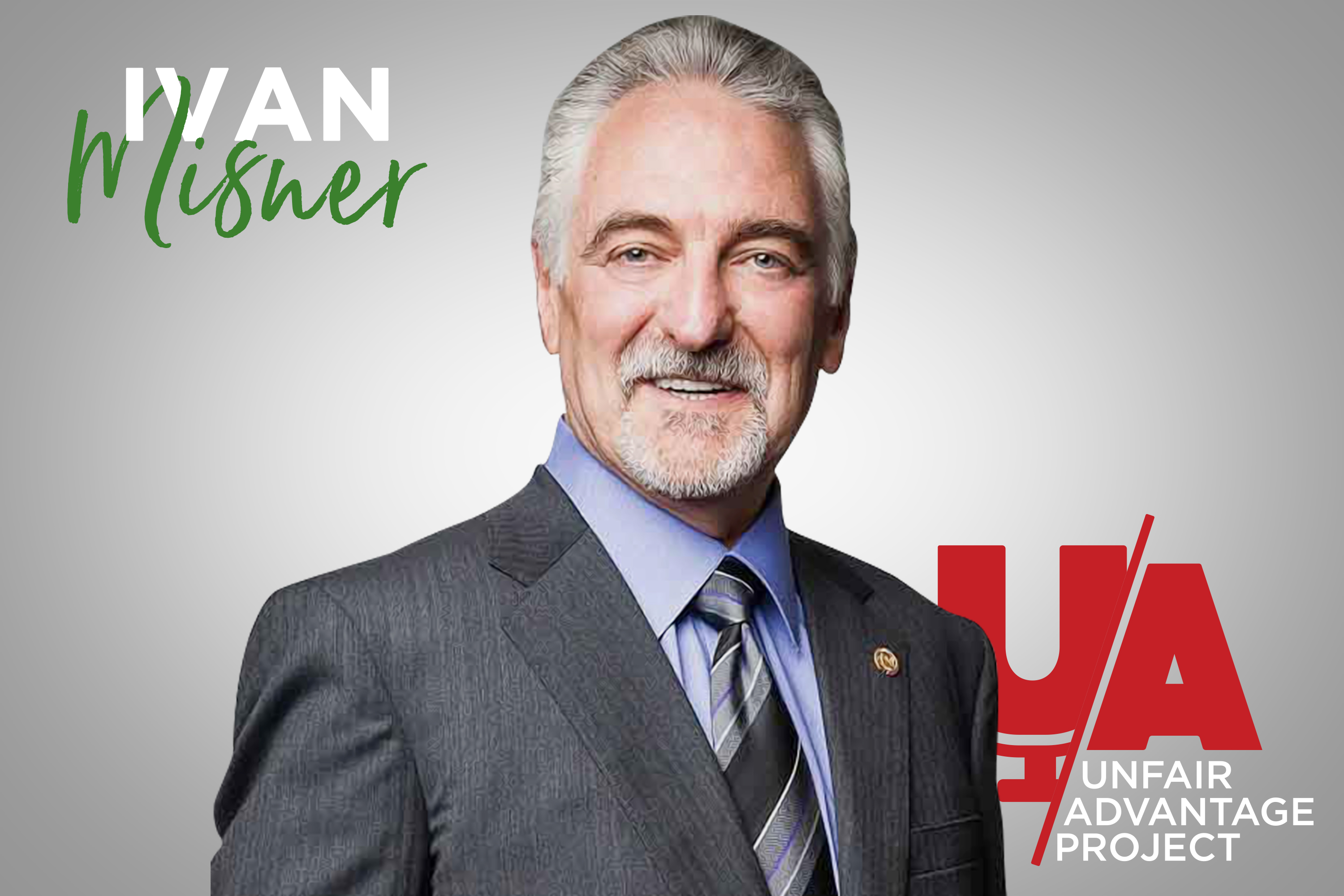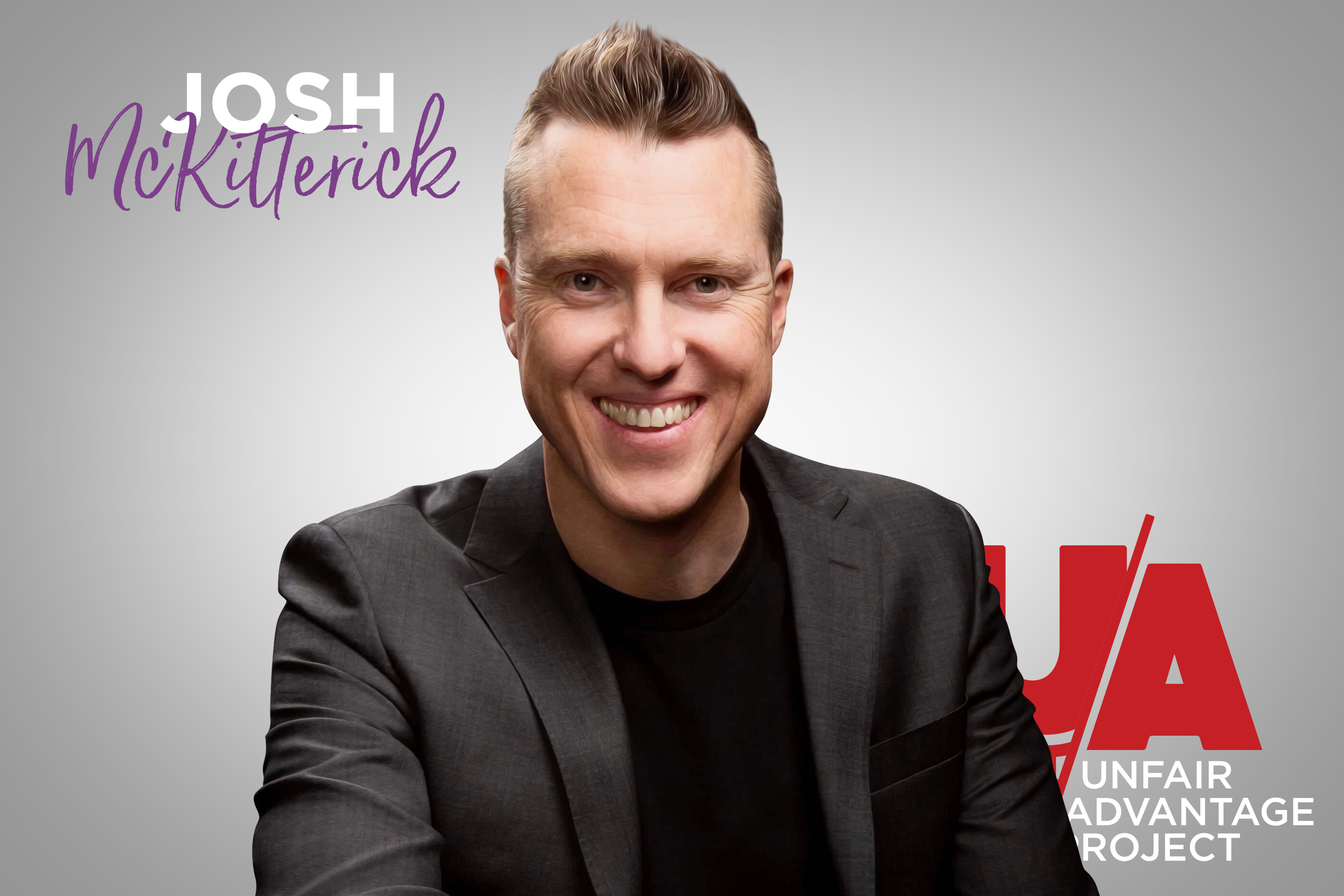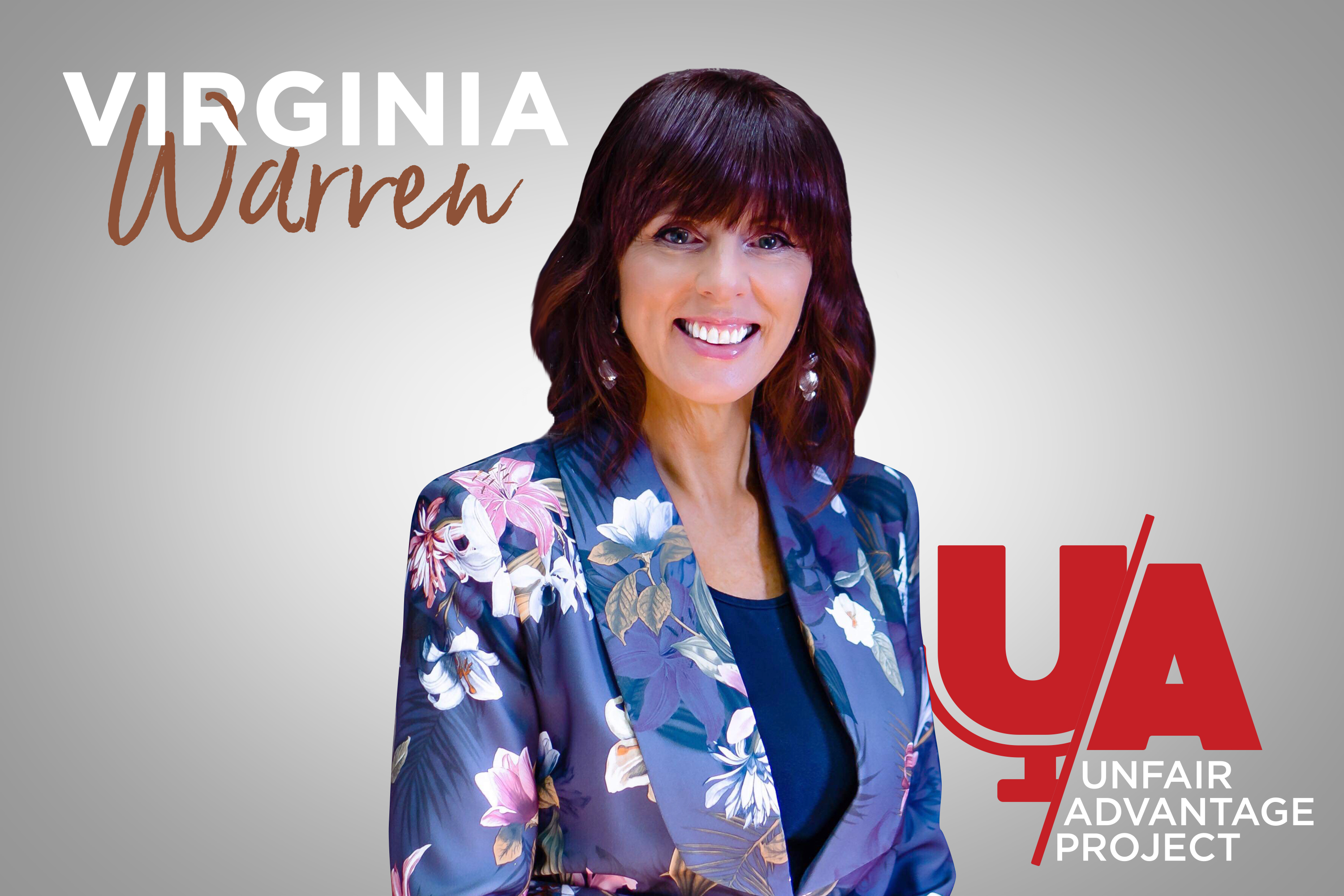Podcast: Play in new window | Download
Subscribe: Apple Podcasts | Google Podcasts | RSS
Show Notes:
Kate being a designer comes from passion. [2:23]
Kate’s creating her own identity. [7:06]
How Kate emphasise the first impression looks in the business [7:52]
Employing a friend in the business – is all about Trust. [9:50]
Kate’s pride in the culture that he created in her business. [11:28]
What is Culture in Kate’s perspective. [12:11]
The superpower of being a single working mother. [12:45]
There are barrier of work time and chatting time. [17:25]
What is Kate’s robust discussion with her team. [18:26]
Kate’s shares how did she get herself in position with her clients. [25:55]
Creating solution for someone who is unaware they have a problem. [28:10]
The beauty of having an incredible team. [29:13]
Building and renovations are considered one of the high stress times in life. [30:32]
The value of outsourcing. [31:30]
Kate’s work ethic was inspired by her father. [33:01]
Kate’s shares the downfall of her family’s business and how the family manage to climb back in the ladder. [34:45]
Kate’s worst financial position she’d ever been in her life. [36:30]
Incredible relationships Kate has with her supplier partners that subsequently help her business out. [39:20]
Kate’s business mentor quoted “sometimes the sweetest fish are the smallest” [46:03]
Highlight and lowlight with Kate’s family. [48:37]
Kate’s initial mistakes in her business. [54:19]
Follow Kate Walker:
Website – https://www.katewalkerdesign.com.au
Facebook – https://www.facebook.com/Katewalkerdesign
Instagram – @katewalker_design
LinkedIn – https://www.linkedin.com/in/katewalkerdesign/
Kate Walker 0:00
Then it came time for me to actually put on my fist staff member. And I was petrified, absolutely petrified that I would be responsible for the wage of someone else.
Narrator 0:18
Welcome to the Unfair Advantage Project. Unique perspectives, practical insights and unexpected discoveries directly focused on giving you the unfair advantage. Introducing your hosts, Nadia Hughes and Terence Toh.
Terence Toh 0:39
Welcome to the Unfair Advantage Project. I’m Terence Toh, I’ll be one of your co host today from Strategic Corporation, and I’ve got with me Nadia today.
Nadia Hughes 0:47
Yes, I’m Nadia. I’m from Unfair Advantage Accounting and I’m very happy to be here. Today I have an honour to introduce our guest. Usually Terence does this but, today, this is lucky days. It’s the first podcast of the year, I’m going to make an introduction of a founder of KWD. Entrepreneur and a single mom. For me, she’s just this very beautiful woman, Kate Walker, one and only.
Kate Walker 0:48
Thank you for having me today.
Terence Toh 1:10
Welcome, Kate.
Nadia Hughes 1:13
Welcome.
Terence Toh 1:16
Nadia, thanks for the introduction today. You did a great job. Yeah. So actually a cool question that I like to ask sometimes, I don’t ask you to everybody. So you’ll be special? How would you describe what you do without using the job title?
Kate Walker 1:34
What do I do? I’m a jack of all trades.
Terence Toh 1:37
Yeah.
Kate Walker 1:38
Possibly master of nothing. I spend my day working with things that I absolutely adore and love, which is interior design. And I also work with people that I love and adore as well, which is my team that are created around me. So I feel very lucky every day to be able to spend time with incredible people working on beautiful projects.
Nadia Hughes 2:02
Okay, Kate, I’m just going to talk to you about your business. What I liked when we had this preliminary, quick discussion. In our coulior, you told me you outsource your weaknesses or you employed your weaknesses, and you’re really not a designer by trade. I would like to zone into this and elaborate a bit more.
Kate Walker 2:23
Well, when you call your business, KWD, which stands for Kate Walker design. Think let’s fix that you are a designer. In fact, it’s been a source of a lot of personal debate for myself, because I’m not trained as a designer. I didn’t go to university. But what I do have is an immense amount of passion for what I do, and passionate, something that you can’t train, you can go to a university and learn passion, you can’t go to a university and learn vision. It’s intrinsically being you and that’s what I have. The design interest for me came from being a little girl. My mother was an interior decorator, who in my mind’s eyes still the best interior decorator that I know. She’s got an incredible eye, she never really ran a business per se from it, but she could have been very successful. And also to my family businesses is, national tiles. So I kept my tape in the tile industry. So had finishes, you know, being tiles in design is what I know, and what I’m really comfortable with. And so the interior design, part of it came from me, realizing that there was a huge gap in the market for very busy people that wanted to put a whole concept together. So when I worked back behind the counter at national tiles, you know, many years ago, I was there for 15 years, I worked in commercial sector, I’ve worked in the retail sector, people would come to me and so, okay, what tile should I use? I’ve helped them with that and try and sell them the tiles. And then people kept coming back to me saying, or can you just check it that works at the timber? And can you check it that works with the carpet? And so inadvertently, I was doing whole concept for houses, when I could only actually monetize the tile section. So, I quickly became to realize that there was a huge gap in the market for someone to pull that whole story together. So when I left national tiles, six years ago, now, my brother who’s actually CEO of national tiles it to me that this will be the best thing that you’ll ever do it because it will give you the independence that you’re seeking. Plus, you’ll be able to work on your passion and I think you might be right success of it.
Nadia Hughes 4:42
And the next very successful move you have made, you said to me. You employed your weaknesses, I want to zoom in a bit more. Okay, I’m now on our own, what he feels thought was
Kate Walker 4:54
My first thought when I first got my VISTA print business card.
Nadia Hughes 4:58
VISTA print.
Kate Walker 5:00
Said, Kate Walker design, I didn’t even think about the name and what the implications were at that point, I just need to get something to hand someone.
Nadia Hughes 5:09
Again, this will be something to hand to someone. This is every entrepreneur. I use this field as well.
Kate Walker 5:18
Well, I sort of almost felt like a fraud in a way because I thought, well, you know, I actually studied speech pathology at university.
Nadia Hughes 5:27
Oh, please don’t judge me.
Kate Walker 5:31
I won’t. Along with commerce and science. So I had all of this different background. But I think the study and I always said people that study in any field is not a waste of time, even if you don’t end up practicing. But I had some business acumen, obviously handed down from my father, my brother in particular. And I had this passion. So I thought, I’m just going to put myself out there. And I started softly by just doing what I had always done. So I went to clients that I knew, selling a product that I knew, which was tiles and Stein, and tiles and stein for me in my blood. I think we’re third generation tile in our family. So with eight brief and search this product, I mean, I started working initial tiles when I was 12, coding all the tiles and that sort of thing. So that was in my blood. That’s what I felt comfortable with that I remember going to my very first appointment with my new VISTA print card. And I dressed up, I put the red lipstick on and I went in there and I closed 15 units or the tiles in one appointment. I thought to myself, wow, I don’t need to share this profit with anyone. And I think I could actually make a real business of these. So I think having success early with their first appointment, gave the confidence to back myself and start expanding my offering, which was the plan in the first place. Because I didn’t call myself cape Boca tiles or what have you been, I certainly wasn’t gonna go up against the juggernaut, which national titles these. And I certainly didn’t see myself advertising on radio. I needed to create my own identity outside my family was using all of the intellectual dash, I guess I had learned it, what I learned in that business, which was, you know, extraordinary, to be exposed to so many elements of the business thing, managing staff, show room fit outs, and procurement and even management to. It taught me a lot. So I used bits of those skills, you know, from each different pocket to create a walk design, but I won’t sugarcoat it, it was just me in my little Mazda with tiles in the back of my car, wearing clothes at the time that I couldn’t afford, because I wanted to look nice and present. Well, it’s always about the presentation, that first impression, you don’t get very long to make someone feel comfortable with you and want to have that conversation with you. So I did put a lot of effort into personal presentation and personal branding. And I went out and I sold tiles at the back of my car. And it was scary. But then all of a sudden these order started to come in and I had a huge success ratio. And then it came time for me to actually put on my first staff member. And I was terrified, absolutely petrified that I would be responsible for the wage of someone else.
Nadia Hughes 8:34
I will be responsible for the wage of someone else. I like laid in bed that night, when I went on my own and thinking. This is what I have to save which comes first correct, which comes first I didn’t sleep.
Kate Walker 8:49
I hadn’t slept for six years. So it started off, I employed a very dear friend of mine as my pa because I knew what I was doing with the selling of the chocolate, I need help with that. I needed help being efficient and effective. And that comes from administration and creative types generally are not very strong administration. So the first person I employed, Jenny, and she’s still with us today was I guess you inherited piles and piles and piles of paperwork to go through. And she sorted my life out. Which meant that I could actually focus on running the business, which is where I needed to put my energies in to make it a success. And so I started of on two hours a week. And I thought I can which. And then within weeks she was permanent part time, it became very evident that I needed more support. So then came another friend who I trusted. So I actually taught a lot of friends. And some people might say, that’s a good thing. Some people might say that’s a bad thing. But I knew the character of these people. And so knowing the character of someone, you know that they’re going to do the right thing by you. Whether they could have their job or not, at that stage was relatively inconsequential on it people around me that I could trust. And I knew I could teach the skills that I needed to get from them.
Nadia Hughes 10:20
It’s also you want to be surrounded by people who you want to propel with average, you don’t want to disrupt drug you don’t understand it. So you speak the same language. And it’s amazing. Because I had the same notion. I, I said to myself, I’m going to be in this business, and I will spend more time on the floor, then I will spend with my family. Who do I want to be surrounded by? And they say the character of the person now will be shaped by five people you spend the most time?
Kate Walker 10:54
Correct. And I’m I’m actually doing some gentlemen free at the moment on exactly that. And I’m analyzing who the five people that are saying much army, and maybe someone will get the camp this week. Because you know, when you sit down, you analyze it, it’s true, better
Nadia Hughes 11:11
do do do do
Kate Walker 11:14
That I really, for me, one of the successes of these very young and fledgling business growing six years old, and I still feel like a fledgling business has been my people have been the team. And I’m very proud of the culture that I’ve created in the business. It’s something that, you know, coming from a very big business that employs to the 500 staff. And watching my brother is to take off and created an incredible culture. I took a lot of notes from this, and I’ve instilled that in my own business
Nadia Hughes 11:47
Law notes I was a bit of loss is shame, because culture is everything.
Kate Walker 11:52
It’s everything.
Nadia Hughes 11:53
It’s from the moment you come to the office does the moment you leave home, this culture is good. And then when you home as well, it will be integrating everything goal aspects of your life, because it’s just becomes part of you. So what is it about, culture? Simple? How would you describe what culture is?
Kate Walker 12:11
Culture for me is people being happy in their workplace. That makes them want to achieve for the business, and to have a culture where people are supported, because we all go through issues, whether they be work issues or home issues, family issues, physical issues, illness issues, like every block doesn’t stop in the workplace, your life continues. I’ve created an environment where I’ve employed. And I don’t want to say I’m, you know, this is an employment prerequisite because it’s not, but 90% of the people that work for me, are working mothers, and I saw a huge gap in the market for employing working mothers. And I’ve got to tell you, being a working mother, myself and a single mother, myself, and in my business I have two others single working mothers, that if anyone can get up in the morning, hit two children ready for school at school on time with a lunch box with fresh food in it with a sports fan of basketball, a ballet shoes, everything there. And they are at their desk just by nine o’clock, they’re hero. You know, they do a whole day’s work of the non working mother and not not putting on working normal from others down at all. Because
Narrator 13:37
I would put non-working mothers are. You guys get ready.
Kate Walker 13:41
I take my hat off to them too, because it’s a job that I didn’t have the patience for, because I was always going to work because I I’m entrepreneurial, I have to build something. But these women and myself included, we get up with run the marathon and we come to work at nine o’clock. And we’re not here having a coffee having a chat. It’s like I’ve already done the marathon, I’m here, I’m ready to go. And the amount of work these women get through in the day is insane.
Nadia Hughes 14:12
Please, please come to my office and meet my working mothers so they can talk to you more working mother.
Kate Walker 14:18
Absolutely will have a party, champagne party.
Nadia Hughes 14:23
I just have a Martini, in my crib. Do you know that Martin is actually one spirit, I didn’t know that, Martini is a one huge infused with cubes.
Kate Walker 14:38
We have a bar at KWD, it’s sometimes I lock it on me. But we do what we do like a drink and we serve our clients a drink as well.
Nadia Hughes 14:47
I have to pick this one. I don’t even have glasses.
Kate Walker 14:53
You know, this culture that I’ve created is one where I give my team the ultimately ability. So with young children is 14 days is you know, drama days, these presentations in assemblies. And my protocol was going to say yes to all of those. So at any one week, I could have four or five team members out doing things with their children to school. But what that is done, and it spreads so much loyalty that to me. And if I give my team one hour off, I can guarantee you, they’ll give me to back. Because they appreciate the fact that they’re not, you know, they’re working mothers hit this little thing. And it doesn’t have to be mutually exclusive. So in doing that, and that’s one of the reasons why I was happy to be out on my own because my father was old school, you get your desk at 630 in the morning, and you leave at six o’clock at night and, and at that time, when my children were one and three, I was newly single. And that didn’t work for me. And it didn’t work for my children. So I wanted to create an environment where I could be malleable and I could labor I felt in my heart I needed to be at the time.
Nadia Hughes 16:06
This is very modern. And this is what it’s about. I agree with you mothers give you hundred percent. I’m an accountant. It’s shame on me, there is no such thing hundred 20 but there is with mothers and I find this movie will adapt to and meet people need the most it will give us but I feel with everyday gratitude is there an ability. What I do see in this this women is they come to do an interview with children as a company as adults, we all had slipped sleepless night and when my recently one of my team members came and she said, I’m running to the unquote, everybody understood one is just gone straight to the coffee machine and making coffee. Because we knew exactly what she went through. Your son had Coco month.
Kate Walker 16:54
That’s what we do. Like we walk in, we take one look at our faces. And we said okay, we’ll clear need to have today because she’s have a crapping night with the kids or with your husband or whatever it is. We are so supportive of one another. We know when each other needs a hug. And that thing I’ve always said to the goals is I’m not running a mother’s club. So there is no chitchat.
Nadia Hughes 17:15
It’s important.
Kate Walker 17:16
Yeah, it’s heads down, bottom up, there is a time for it. It’s a time for work and as a time for chatting. And we have plenty of parties. And you know, we have plenty of Friday night drinks. And you know, we have incredible team building events where we go away for weekends and that sort of thing. But when we work with work, and we’ve worked really hard, and I’m a hard taskmaster. I’ve been told in the past that my expectations are very high. At To be honest, I don’t apologize for that, because I expect excellence of myself and anyone that gets a say on the KWD needs to know that’s what I expect. You know, no one will die wondering what I’m thinking. Because, I will them. Particularly women can sometimes be very sensitive. So you need to manage that. And another I’m not sure the happy with what I’m doing or how I’m doing. I said it going until I tell you I’m not happy. And I will tell you. So I spend probably an hour week with not with every member of the team and hour a week in the process of having what I call robust discussions, robust discussion, robust discussions,
Terence Toh 18:41
How about a robust discussions.
Kate Walker 18:42
A robust discussion for me is where I sit with someone and I preface it by saying I’m going to have a robust discussion with you. Meaning I’m going to tell you exactly how I feel about how you’re performing right now, this is not a personal attack, it is all about your work, and this is what I’m going to do to support you to get a better result. And whilst we’re all friends, it can be sometimes challenging to remove the friendship and the workplace. But investing in these robust discussions that always end well, they always end with a hug, always are very tactile I can. I can sit down with someone and say, for example, Megan, I love the way you’re doing this, keep that up. I don’t like the way you’re doing this. This is my advice for how we could possibly change it. And I want you to come back to me and let me know how that’s going. You know, we talked earlier about my got sidetracked about employing my weaknesses are employed all these people as experts in what they do. Because as I said earlier, jack of all trades master of nothing. I kind of feel that I’m really, I guess, a conductor in an orchestra. And I’m keeping everyone moving. So it’s a time sometimes I feel like actually don’t do any work. All I’m doing is making sure that the moving parts are all moving in the right direction. And in the right sequence.
Nadia Hughes 20:16
And when you feel like you don’t doing your work. Do you feel like there is a sweat breaking down your shirt? I do the same with the just done nothing? But I’m also Yes,
Terence Toh 20:27
I’m interested because you’ve grown, you said you’ve grown from the table? Just yourself. Yeah, to attainment 15. Now, and that’s been fairly rapid growth. And for someone listening to this, I think okay, well, that’s that’s fine. You know, we’ve been told my growth, you know, is was there a particular order? And you said that you you also include your witnesses, but was there because you’re that created them? Right. That’s how so I was there a particular order, then if you’re the creative? What was your order of bringing on your team members to be able to support you? What were the things that you look at first? And then I’ve got another follow up question,
Kate Walker 21:09
Okay. So basically, I employed my severe weaknesses, which is administration organization. So my brain I said, lived through time, not on time. So I needed someone to keep me on track to make sure I had everything that I needed every day to be effective in front of clients. So we will make more money, by me being in front of people and talking to people. So I’ve got a mobile phone, and a computer of which I really use either my clients and I not to ring me, because I’m always in front of someone. And when I’m in front of someone, I never answer my phone, I’m 100% focused on that person, because I believe that that’s where you get the best result. And that person feels supported, understood and heard. And that’s, you know, the basis of a sale, if you feel all of those things.
Terence Toh 22:03
It’s a basis of a good relationship.
Kate Walker 22:05
Absolutely. So I need to people behind the scenes to basically mop up after me. And I have this vision of, you know, half brush, if my team coming behind me mopping up all of the the bombs that I create and our plans because I’m in front of clients, my head’s going, I’ve got all these great ideas. And then I get out there and think how the hell are we going to make this happen? And this team coming behind me like a SWAT team, and then literally take everything that I do that meeting and make it happen. So we’ve got a business rule where I’m not allowed to go to a meeting alone anymore. I didn’t make that rule. My team made that rule. Because I was sick of, you know, trying to get out of my head, what happened in that meeting, because I’m already on to the next thing. And so the download from my head was a really important aspect for our growth. And for our clients to be satisfied.
Nadia Hughes 23:00
Are you allowed to record your meetings.
Kate Walker 23:04
We could possibly if that go for 2 3 4 hours, like to listen back to that would be
Nadia Hughes 23:09
It is a wonderful program. Yes, you can put it in? Yes. That’s right. Keep going.
Terence Toh 23:16
We got lots technological tips for you.
Kate Walker 23:20
Thank you. Because I’m a technological noob. So I have employed someone that’s good on the technology. So Kelly, make sure our email systems right. And, and actually, that’s one thing that I do do very early, having come from a big business that had great systems, I started a very small business. And when that lack of the business.
Nadia Hughes 23:41
Start it very small business and run it like a big business. This is the secret of KWD a success. This entire thing. I think that’s where apart from also culture, culture is it what.
Kate Walker 23:56
Culture is huge team has to be number one.
Terence Toh 24:00
Culture is the massive drivers, larger businesses, right? I mean,
Nadia Hughes 24:05
I really want to talk about systems, what did you take? I want to know it is a lot of people go out there, all they do is just replicate the same things they have before as adjusting the employed themselves and sold it on,
Kate Walker 24:19
They bought himself a job.
Nadia Hughes 24:20
That’s exactly it.
Kate Walker 24:21
Eventually and I didn’t want to buy myself a job because, you know, I work 70 hours a week, every week. And I don’t want to work 70 hours a week for the rest of my life. So I needed to create a system whereby I can essentially be duplicated and replicated. And that was really difficult. So we spent quite a bit of time and energy will we didn’t. I shouldn’t say Wait, I didn’t, Kelly did because that’s her area of expertise. Investigating systems for customer management. Because essentially, when you in sales, which is which is what we are, we are in sales that’s fluffed up with design. We needed to keep track, we needed to give excellent customer service. And one thing I learned very early on in the pace back in the national tiles days was the most helpful sales position you can put yourself in is that you are bringing clients, when diet sinking, they need to renew.
Nadia Hughes 25:25
Wow.
Kate Walker 25:26
So if you can get yourself in that sweet spot,
Nadia Hughes 25:30
You already knew the client when they thinking they want to renew?
Kate Walker 25:34
Correct?
Terence Toh 25:35
Can I put a little bit differently to that and that is talking about sales and to make marketing, we need to enter the conversation that’s already happening in the mind of your prospect. And I think that’s, I think we’re talking about the same things that right?
Kate Walker 25:51
We are and so
Nadia Hughes 25:52
How do you get yourself in this position?
Kate Walker 25:55
So when you meet a client at a time, in essence of time pressure, the essence of a budget pressure, that’s when you make those decisions. Whether that’s with a choosing a tile, or whether it’s choosing what to call upon back, or when to fire them up. So at the end of every meeting, I would send a note back to the team. And we used to start with, you know, the sheets that I never feel that properly, you know, handwritten things, and then we went to dig defines. So you know, I’d have to speak into my phone and then send off that transcript to someone in the office. Well, that never happened because I was driving to next appointment, because I’d run over time because I’m creative, and I was running late. So and that’s when we started to take someone with me that information and they kept fully documented notes of everything that I was promising. That I would say at the end of the meeting in the car, to clear generally is my general manager outside, we need to call them in three and a half weeks, because that gives them a time to go home purchase what we’ve said speak to the husband speak to them off to the bank, so you don’t get the money. And then we’ll call them. Now when we call them at exactly three and a half weeks. Without word of a lie, majority of the time I say I was about to call you, you saved me the phone call. So already you’re in sync with it. And already you’re in the headspace where they saying these guys know what I want and they understand my time pressure, they understand my project. And so just being feeling understood is so powerful.
Nadia Hughes 27:29
You just calculated precisely the cycle of client readiness to have a conversation where they ready to commit, and you’ve done it based on your experience you have had. So this is important because a lot of people do premature solicitation. A lot of people do, they both are the clumsy, and they lose the sale instantly, if you will to call within three days when they completely not ready they haven’t had the conversation, it would turn into this flies able.
Kate Walker 28:03
And it becomes like a sales call. And our whole ethos, okay that we do is not about sales, it’s actually better solution. So you know, to have a business you’ve got to give, or business it’s going to fly, you’ve got to create a solution for someone when often they don’t know that they’ve got the problem. So for us to put together a full design solution for very busy people, because because what you know, we know our ideal client talk and they are our ideal client type, Julian come a couple of kids working to do a renovation or build that they possibly can’t afford, and then really stretching themselves to do so. And they want to engage professionals because whilst I have an idea of what they might like to do, they don’t trust themselves to make these huge decisions. Because you can’t just change tiles can’t just change team before this, you made a mistake on the color. They want that validation from someone in the know that they thought process and the design direction is right. So people are paying us, basically to give them validation and we offer a lot in that as well. You know, we certainly make spaces look absolutely beautiful. And that’s because we now have an incredible design team, which I’m the head off, but I don’t do all the designing, I do the creative direction. And the design team actually do the designing because I our interior designers, so I’ve employed my weakness, I’ve employed people that can draw and can design rather me just having this amazing vision that actually needs to be executed. So, you know, understanding your client type is one thing, understanding what pressures they may be facing is another you weight joke with that client’s sale. You know, we also have a marriage counseling. Because the amount of arguments that we need to dampen down is huge. It’s a highly stressful time building.
Nadia Hughes 30:09
You’re creating space, they want to enjoy it, and they have different ideas with each one of them will enjoy it. You have to reconcile it
Kate Walker 30:16
Always, always. Yeah. And you know, we had some clients in our office, I mean yesterday and when they don’t agree with each other, they start speaking a different language. And you know, what’s in the thing we can’t really helped in this situations because, we don’t know what you’re saying to each other. But we do we support our clients through these really big decisions because, you know, building or renovating or moving they considered one of the high stress times in your life along with it and divorce, and that sort of thing. But yeah, some people come through this with this and some people going through this with divorce. So it’s a highly emotive time. So we certainly obvious ethos is to realize our clients dreams, new home or their renovation with a streamlined and systematic process. And so these ideal client is being two working parents that do not want to go to a shop on a Saturday, because they’re running, building and Johnny to soccer training and football training. And then on Sunday they doing on kid camp , you know maybe say old family.
Nadia Hughes 31:22
wisdom to understand it’s not their strength.
Kate Walker 31:25
It’s not their strength and the other. So prerequisite for our ideal client. And we don’t only work our ideal client top, but the other prerequisite is that they generally business savvy so they understand what outsourcing is, and they understand the value of outsourcing. So you know, for me, as a single mom, I outsource pretty much everything from cooking, to cleaning to Window Cleaning to be going out to car washing, to dog walking to dog grooming. I outsourced a lot, because I learned a very long time ago that you shouldn’t spend time doing something that you can pay someone a lesser amount per hour than what you could be earning. If you worked on your business
Nadia Hughes 32:10
Competitive advantage. Opportunity goes great,
Terence Toh 32:14
There’s a saying a poor man values money and a rich man or woman, rich person values time and virtues.
Nadia Hughes 32:28
So where did you gain this wisdom, by watching your parents? Because you said that at some point of time, your family actually had to run you their own household in a time of recession as a business. When did you learn this skill, because a lot of people holding on to not outsourcing. Parents, for example, not outsourcing because
Kate Walker 32:54
I’d love to outsource parenting often with teenagers in the house. But unfortunately, that’s either go. I learned this in 1991, there was a huge recession. And my father owned a very successful business engine long and and it was very hard felt in due long, because it was a pyramid building society to collapse that sort of started the domino effect. And being in the building the strange along was a disaster. So tile sales blew up overnight. And my dad, he had to go back to doing what he knew this and he got this advice from his father to get out and getting these huge and fills you with tiles and go and some tiles from running your business to going back to that was was enormous to get up at four o’clock in the morning and drive to Swan Hill. And so pallets of tiles off the back of a tray huge and drive back at nighttime and, and you know, we saw him move like that. That’s where my work ethic came from. And my understanding that money comes and money goes and good times come and good times go. And so I’m never really confident that the business growth will continue. I’m always worried deep down in my gut that
Nadia Hughes 34:10
Are you still worried or you accept things that it’s a cycle? Everything is a cycle?
Kate Walker 34:15
I accepted. It’s a cycle, but I won’t lie to you. Every morning I wake up and I feel like I could vomit. Like Yep. And my brother said to me and my brothers a huge mentor to me, he said, Kate, if you don’t feel like you’re vomiting, you’re not giving it a red hot go. And, you know, I’ve got a lot on the line staff that they get paid before I do. And you know, sometimes in the last six months, I’ve been paid in the last six years, I haven’t paid myself for six months, because my staff have had to be paid. And I’ve had to ride this way, hoping it’s going to come back. Other times I feel like the Queen of Sheba and you know, I can do anything and go on holidays. And on you can’t because you feel this, you know, huge success, but because of my family history and living as a 13 year old through a recession. And understanding what that meant for our family was in holiday has is losing boats, losing cars. You know, the only thing my parents kept in all of the peripheral things with their education. And they work so hard that and my dad could have easily gone bankrupt, like a lot of his friends and colleagues in Shillong do, they all went bankrupt, bankrupt in and then last continued as they were but my family paid back every single cent they took them years to do it. And to dance credit that tenacity, as led to the success along with my brother been an incredible asset to the business. And he certainly tack on to the next level to build the business he has today, which is an amazing business.
Nadia Hughes 36:04
That is a deception. Because you come from a wealthy background, things come easy to you. What I heard is completely different story. And I’m not surprised is to be successful, you do need to have the skill and skill comes with hardship you have to overcome and what I do want to come to is this amazing. And it’s very important for a lot of people to understand your decision to run this out there. A lot of people out there give up because you can’t borrow money. They decided that’s it end of it. Tell me how can you just leave and propel without any go running or biking
Kate Walker 36:30
I was on a good income at national tiles. And However, when I left the business, I was in my worst financial position I’ve ever been in my life. And I had nothing huge credit card debt. I had a home but it was highly mortgaged. And my dad gave me some advice when I started and he said, Whatever you do, don’t borrow any money and don’t give any credit. He said because then you won’t get yourself in trouble. The only person you can get in trouble is yourself, eventually. So I took that a face value. Because we work on contracts that can be 100 200 300 up to 567 hundred thousand dollars. As you know, a young woman running a business the thought of someone not paying me $700,000 I need to sleep at night. I would lie awake, constantly worried about them. And I don’t sleep, I sleep for hours. Now I’m a bit of an insomniac. But if I had that worry, it will be horrific. So now my worry comes with cash flow. Because as a business grows, it sucks that more money and more cash. So the more money we have made or half reinvest that money back into the business. And so I’ve taken risks. And we’ve gone from around the dining table where there was essentially zero overheads to now 15 staff which you know, makes facility to, to beautifully connected spaces, which we have, which was sending an email, Martha. I’ve got a studio space and an HQ space, which was a few hundred thousand dollars. So I stopped a profit out of the business and put that packing to, you know, into the business. That scary, really scary.
Nadia Hughes 38:25
So you secret of running without backing off loans or borrowing is you basically asked for prepayment, in the contract?
Kate Walker 38:35
I always ask for a prepayment because you know, out of date out of danger, I say. And when you’re dealing with big contracts, it’s important for us what it’s twofold. Number one, I don’t want it to live a productive side and the client layers and say oh, by the way, I don’t have any money to pay you. That would be disastrous. And some building companies and particularly develop isn’t running a project, running that business into the ground and then starting again under a new entity and doing it all again. So that’s not very good way to do business. And I didn’t want to do business that way. The other thing that prepayment does every time I client pays me for example, if 50% deposit, I put that 50% deposit, against the product. So I’ve created incredible relationships with my supply partners, to make sure that I’m getting a baseline power. And I know they’re getting paid. So that’ll be another backwards for me, like I might be ideal client for my supply partners. And, you know, we haven’t talked about that side of the business. But I said a lot of my time talking with supply partners getting better product, better service better prices, is another lesson I learned it’s not what you sell a product for, its what you buy it for. It is a market essentially sets of sale price, the expectation. And if I can buy a beta and make money, more money that way and leverage it that way, I can offer my clients a better process in that they would get in the marketplace. So the contracts a no brainer. And then secondarily opening, grace profits. So whilst Instagram and Facebook shows you’re spending all my time putting together, I’m actually a contract negotiator. And if you introduce me again, I would probably say that that’s what I am. I’m an entrepreneur in the design industry, that essentially is a contract negotiator because I buy and sell product.
Nadia Hughes 40:29
So ladies and gentlemen today’s podcast is with Kate Walker, who is contract negotiator.
Kate Walker 40:40
And so I love nothing more than negotiating with the people that I negotiate with every day. And you know, without now our market presence, which was again employing another weakness, which is PR. Is a hugely brave step to, as a fledgling business to spend all this money on PR. It was kind of a bit crazy and a bit at a balance that what Melanie quote my my PR manager has done is created the brand, which is kind of Ocala, the creative director create the brand, but she has taken the brand to market. And now we run a little show room at the back of an arcade in an outlet for village. Like there’s no free traffic. You don’t, it’s very much a destination store and with the destination store we need to let people know that you’re there and let people know what we offer. So that’s where the social media is coming. So you know, Instagram, Facebook, blog posts, so I’ve spent a lot on PR Melanie’s help us get into magazines. You know, you know, even today, Melanie set this up for me to be able to get them. So to have that say things that to back yourself to say I can make this brand work was a masterstroke because now people know about me.
Nadia Hughes 42:09
And then tell me about Bradbury. Right? You talked about wild ride on the wild horse?
Kate Walker 42:18
You know, running this business is seriously for me, like if someone says, you know, what’s it like owning your business is not for the faint hearted. So what do you mean? So every day I feel like I get on the back of a grumpy and I can’t ride a horse with no settle and no bridle and I’m holding on for dear life because this
Nadia Hughes 42:35
What are you holding coz the years of what
Kate Walker 42:37
Or the main or something whatever I can get fistfuls of main, I would say. That I was not expecting the growth. I was kind of happy as a single mom running my business from the kitchen table with a couple of admin support. Having a very comfortable life and myself with my children. All I wanted was to own my home and take them overseas once a year and educate them well. And really, that’s, that’s what I want. But unfortunately, my DNA suggests that I have entrepreneurial blood running through my veins. And
Nadia Hughes 43:13
So you’re possessed, you just did take so much comes at night and takes over.
Kate Walker 43:20
It takes over. But then opportunities present themselves to me. And I’ve had to learn a really good lesson. And this is a self taught lesson that sometimes the best decisions you make of the ones who say no to and for me starting a business, I was saying yes to everything because you want cash flow and you want momentum, you want to work on every project but I took on projects with clients, I should never take it long
Nadia Hughes 43:49
I call it being. Have you get a sales, come be my client. Then we turn into modam of the very libroto.
Terence Toh 44:00
I don’t know if we need to go there.
Nadia Hughes 44:06
No you don’t go there.
Terence Toh 44:06
Nadia said I’m here that kind of
Nadia Hughes 44:10
damage.
Kate Walker 44:12
But you know, I said yes to every single client. And I’ve learned as I’ve matured, that every time you say yes, you’re saying no to other opportunities because of opportunity cost. So it takes a chance I’ve taken on projects I should never have taken on. And it cost me a lot more than I thought and sometimes at the gym paying these people to services clients, and I’m not making any money here. And let’s face it, we’re all in business to make money to support our lifestyle
Nadia Hughes 44:43
Terence told on me on this one. You think is this one? What do you think no to
Kate Walker 44:49
Today?
Nadia Hughes 44:50
Like when you making this decision saying yes to something, what are you saying no to
Terence Toh 44:55
It’s what I call a decision filter. So it’s like, when you look at because the way that I see it, most entrepreneurs are afflicted with this problem, where they just there’s too much opportunity, they’re almost immobilized by opportunity. Right. And so they see opportunity everywhere. And I think probably all three of us could, could could relate to this. And probably most people listening can relate to it, and you just see it look at their new, there’s an opportunity over there is opportunity. And it’s just which which opportunity can I take, I want to take, you know, as many as I can, and you kind of try to skip them all up, and you can, you know, you can’t carry them all with electronic, you know, take it.
Kate Walker 45:39
And that’s where I use my business mentors, and I’ve got probably three business mentors. One in particular I speak to every single day, and he’s 10 years ahead in business to business a lot longer than 10 years in age. And he’s advised me always is, I want you to avoid making mistakes that I’ve made. This is I’m just going to be tough with you. And and tell you as it is. And you know, he’s he’s taught me that sometimes the sweetest fish are the smallest. You know, you don’t need to be taking on these big projects all the time. You need to have a life you need to try and spend time with the kids and and spend some time you know, downtime. I’ve got chronic high blood pressure. I know why that is. Because I’m a workaholic. And I’m high octane. You know, I’m dopamine based. And I’ve learned that from a trainer that he put me on to it’s very rare to find a dopamine based woman. And that means like I just go for it. I go for opportunities, I like on goal oriented, I like to achieve and I’ll often push my own health secondary, even, you know, honestly, I put time with my kids secondary sometimes. I get completed with that all the time. You know, I work really hard I come home and bring work home. Combated that by by you know, and scarily I do run my home lack of business. You know why? You don’t have a housekeeper that make sure we have everything we need at all times. And the dinner on the table when I get home and a house is clean and is schedules and you know, strict routines. But I actually showed you in one on one time with my kids. Michael car, Greg, who works very closely with my father on on a foundation that jets running has done research into the fact that you need to give children to feel loved, supported and heard, need eight minutes of one on one time a day. It’s actually quite long, when you think about it with my head, thinking of all of these things while I’m trying to look entertained. With an 11 year olds problems was really tough to be nice. But now put the kids to bed alone, it should be five minutes. To begin with, I had to tell myself because I mean it was like pulling teeth. And now it comes naturally. A teenage boy lying on the bed looking at the ceiling, no face to face confrontation, the conversation just flows.
Nadia Hughes 48:15
Beautiful Thing. That’s how I live my son likes classical music. He has it from his his legacy with love. That’s a beautiful moment.
Kate Walker 48:27
It is very special and I get to the core of their issues. We also, you know, I’m often eating dinner standing up because I’m ready for the next thing, which is not ideal. But they do this thing around our family type of nighttime, which is highlight low light. I figure if you know the worst thing that happens in a day and the best thing that happened in the day you kind of understand you got to build some braces approach to say, well does this need attention? Or does that need celebration? And we should cut a lot of conversation quite distinctly and quite short. Together get to the practice of any major issues that could present themselves with teenagers which they obviously do.
Nadia Hughes 49:08
So wonderful, how a very busy mom will find this place of comfort for her children. You founded this is my eighth minute quoted. You can be a mom who just completely up suddenly physically with them all day, but not really.
Kate Walker 49:26
But you know what the national averages are? This is a question to you two are the national average of uninterrupted undivided attention to a child in one minute. So it’s not impacting the dishwasher while you’re talking to them. It’s not driving the car while you’re talking to them and interrupted and divided attention. What the national averages.
Terence Toh 49:46
Yeah, I’m going two minutes. Absolutely taking a guess
Kate Walker 49:50
17 seconds,
Terence Toh 49:51
17 seconds?
Nadia Hughes 49:52
How embarrassing.
Kate Walker 49:54
And that’s where I was. I was at 17 second mom until that research was presented to and I decided to change it. And I thought if I can do eight minutes you know, I can find eight minutes in my day with the kids one hundred percent.
Terence Toh 50:11
Interesting. Look, I’ve got my thing that I do with that is I find things that that I love to Kids and they love doing with me. And it becomes really easy for me than to give that undivided attention. So my. So for instance, my my youngest son is easy to basketball right now. So you know, I’ve started spending time with him. And we play basketball, we do other things as well. But that’s one activity that we would probably spend, you know, a good hour a week doing, at that some point in time. For my youngest daughter has decided and probably decide and when she was about for that she loved to sing. And I’m slightly musical as well. So we’ll we’ll sit down, we’ll play music either move so that there are little things together. So I just I guess I taking that, you know, that approach to it. And that that kind of works for me. But I love the idea of just, you know, just just spending that uninterrupted focus time is amazing. And we’ve got, I think. It’s really easy, we live in an in yet in an age of distraction. So we live, everything’s at Facebook is built on distraction, denied. Social media is built on distraction, there’s so many things around us that are built on distraction. And we sometimes just need to get back to for me, that’s that’s one thing I love to get back to, whether it’s in the business, whether it’s at home, or whatever, uninterrupted focus time, he’s just go.
Kate Walker 51:42
And you know, I’ve had so much guilt over parenting, because I haven’t been around in time, also on there for, you know, emotional, physical financial support. Time, it’s something that has been really short that it’s been so interesting to watch my children learn from me from my actions rather than from words, and and we all learn from actions rather than words. It’s what you do, not what you say. And, you know, I’ve got one very entrepreneurial son, and you know he will negotiate everything with me. And so I think he’s going to be an asset to the business, if you ever wanted to join, you know, he’s got the gift. And you know, he might fail at school, but when it comes to money, he knows his number.
Terence Toh 52:29
I think we’re, I mean, you know, we’re almost kind of wrap up, to be honest, but it was just one thing that you spoke about just a little bit earlier, I want just go back to your answer to, to not buying a job. Right? You kind of mentioned something about it. And that’s when it kind of anyone listening who’s it was my answer? What is that?
Kate Walker 52:53
What’s the answer for not buying a job.
Terence Toh 52:55
Yeah. I mean, you said, You know, I see a lot of entrepreneur, as business owners get into, I call them to begin with, you know, I’ve got four levels, right. So I say, and most people that I work with one of these levels of relationship with their business, I’ve got the jawbone, who just literally speaks exactly what you said, they own their own job, the opportunity owner, who has all the opportunity out there doesn’t really necessarily know how to get on, you know, what to do with the opportunities are which opportunities to take, which wants to say yes, which is to say no to the business owner, which is where they’re starting to develop some control. And you know, it’s really an interesting in business development, the power of the business behind them, and then what I call the asset owner, who are out there building, building real assets, you know, which which is, which I think is, a lot of people could have business as a business. But I look at the business as an asset. And I look at a lot of the things within the business as being an asset. So I’m wondering what your, your end, you know, what your take is on on how you’re not just going into everyday building a job for yourself, because that’s easy to do, and easy to fall into that trap?
Kate Walker 54:05
Well, very much so. And I keep questioning myself as to whether I can create scale in the business. And that’s where it becomes an asset. And obviously, at the end of the day, I want to have a saleable asset. So I made initial mistakes by calling my business Kate Walker Design. So we rebranded that to KWD, and complicate Walker design, because I didn’t want to be the asset, I want the business to be the asset. So you know, I see a lot of small business where they are buying themselves a job, and that’s okay. But that’s not why I’m taking a risk of wages of 15 staff every Monday, because I don’t do business for the exercise, I do a business to get an edge, and to build something that that’s, you know, going to give my family stability, well into retirement. So it’s been very difficult for me to work out how to scale up when I’m the creative. And there’s only so much I can give and working 70 hours a week is not ideal. So working more and more money that that was at the detriment of lifestyle, work life balance, whatever that is,
Nadia Hughes 55:17
You will find out the one thing I hope so.
Terence Toh 55:19
There’s no such thing.
Kate Walker 55:21
So I’ve decided strategically to create a whole other arm of the business to create this passive income. And we’re about to launch a business called KWD CO, we were going to be selling our products online, because right now KWD any sense is only really affordable by high income earners. Because after he started, so for example, 15,000 can end up in $90,000 to for a house. Now, that’s a lot for the average income earner. And so my goal is to bring interior design to the messes. And that’s where you get scale is KWD and Co business, which I’m hoping is going to fly. I’m putting a lot of work into it at the moment, is where we set up a website where we’ve got the set, design aesthetics, according to KWD. And if you want, for example, Hampton style home, which is very popular at the moment, this is Hamptons, according to KWD, these are all the products that should that should put into your home, click on them, and we’ll deliver them. So hopefully we can have clients on your products at two o’clock in the morning at three o’clock in the morning. And that’s where that passive income will come. And that’s where it goes from me by myself a job to actually having an asset, the desirable asset with obviously the branding that’s gone behind it with the other social awareness of who KWD is and what we do and the products and and the projects that we put out there are all really well received by people have the stumbling block to scale, is affordability for clients and my time. So to be able to spend a lot of time in its infancy to put these things together. So the clients have asked for free. This is what Hamptons looks like and these, prospect tiles, we think you should use this as a team where we think you should use as basically KWD wrapped up in a box was not taking away from our premium brand and our bespoke service, which a lot of people wants to. So you know, there’s nothing wrong with buying yourself a job. There’s nothing wrong with that. But if you want a saleable asset at the end of the day, you need to get that scale. And so that’s what we’re focusing your time. And if it’s not
Terence Toh 57:45
scalable, scalable. Poetry, they’re doing the. Alright, so probably last question, how can our listeners connect with you and find you?
Kate Walker 57:56
Well, we’re everywhere on social media. Instagram, it’s a great way to
Nadia Hughes 58:01
You want to avoid people, please don’t go to Instagram, Facebook, LinkedIn.
Kate Walker 58:08
We have our website, which is katewalkerdesign.com.au. You can contact us via there with our email address, which is info@katewalkerdesign.com.au. We are on Instagram, which is at katewalker_design, and Facebook we’re Kate Walker Design.
Terence Toh 58:28
Okay, well, thanks again for being our guest today. Thanks for being so generous with your time and your knowledge information. And I really appreciate it and I’m sure we’ll be talking to you again in the very near future.
Nadia Hughes 58:39
I would love to, it was very heartfelt discussion. Thank you for being so sincere and so you.
Kate Walker 58:44
Thank you very much for having me. And we’re definitely going to have that Friday night drink with your team.
Terence Toh 58:50
Am I invited? I’m a working father.
Kate Walker 58:51
You can come. Yeah, I’ve got two working fathers on my team. So yeah.
Terence Toh 58:55
yeah.
Kate Walker 58:58
Thank you.
Narrator 59:02
Thanks for listening to the Unfair Advantage Project. For more curated resources, visit us at unfairadvantageproject.com
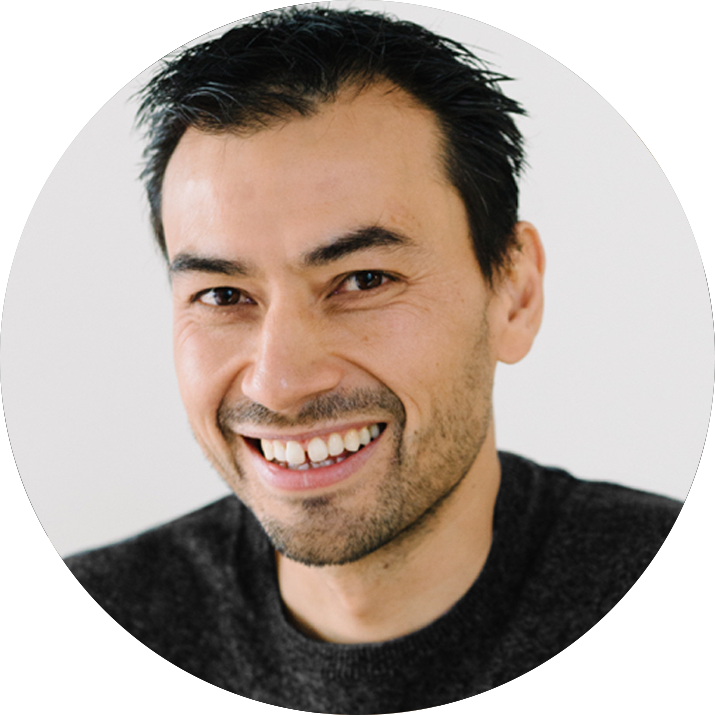 TERENCE TOH
TERENCE TOH
About Us
The Business Coach.
Terence is the founder and Managing Director of StrategiQ Corporation, a serial entrepreneur and experienced business operator who has founded, bought, grown and sold several … see more

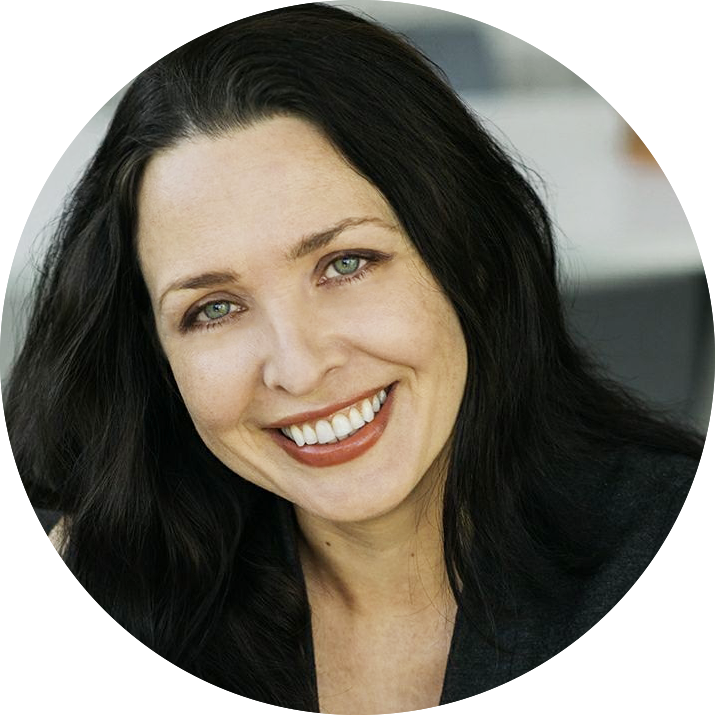 NADIA HUGHES
NADIA HUGHES
About Us
The Super Nerd.
Are you passionate about the ins and outs out of taxation legislation? With Nadia by your side, you don’t need to be. Accounting and financial planning isn’t just her … see more
